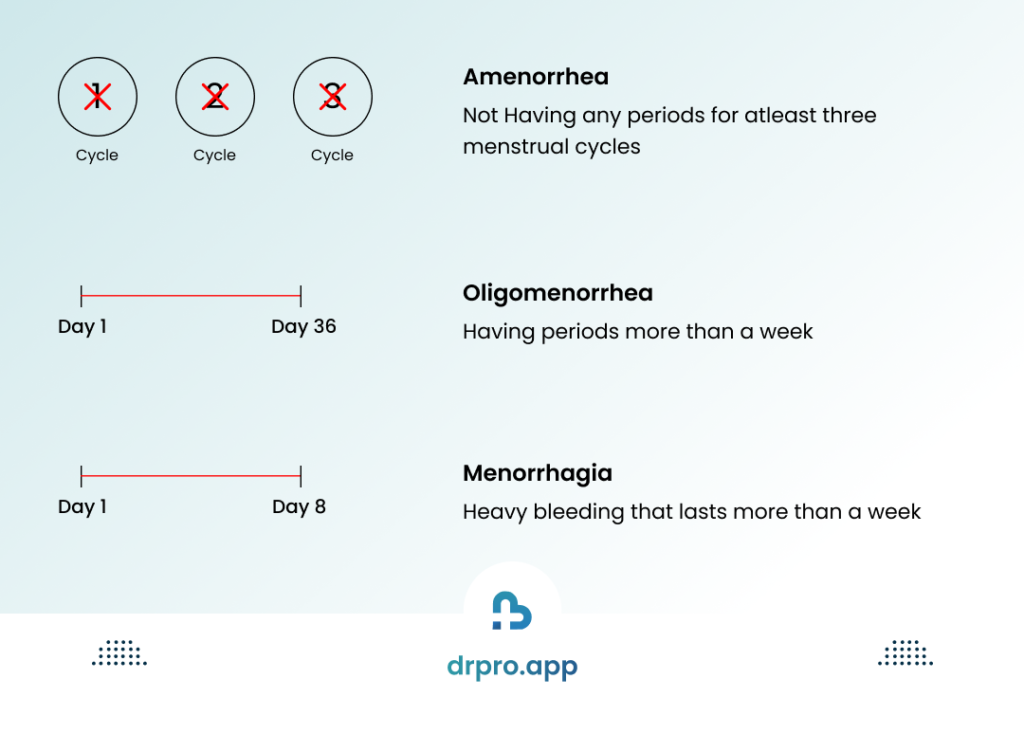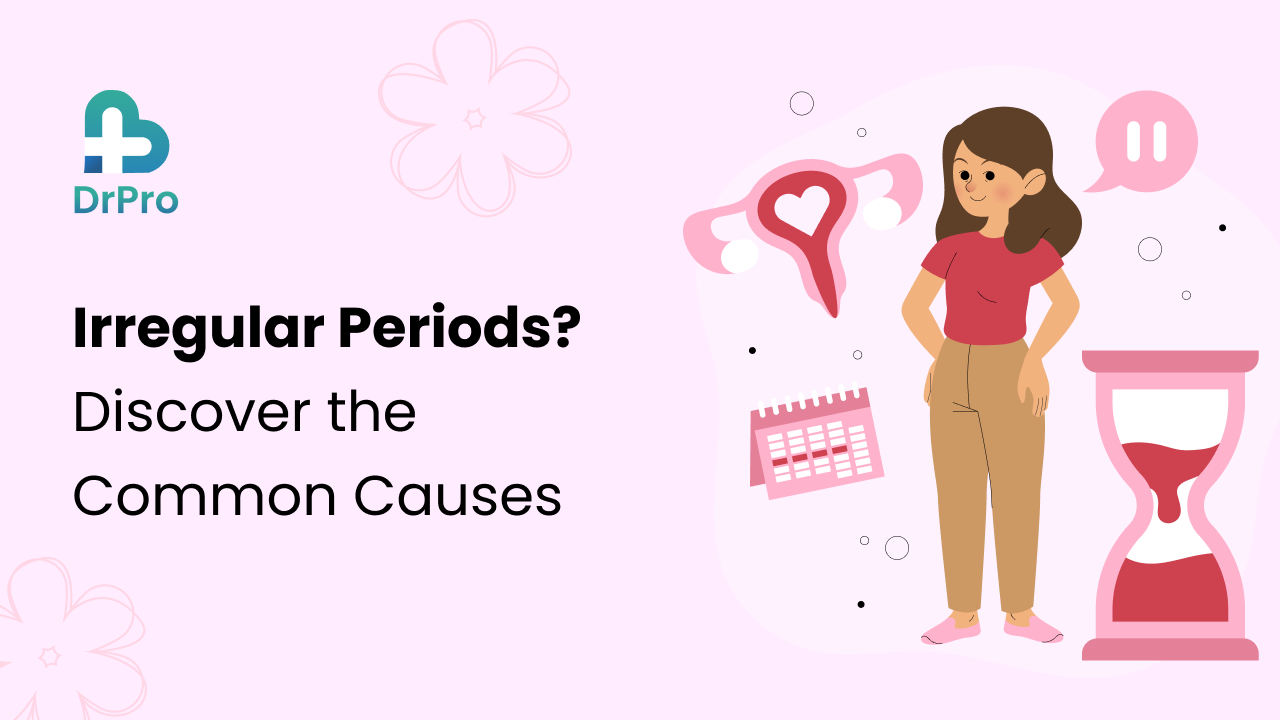Irregular periods can be frustrating. Understanding common causes helps identify health issues and find solutions. This blog explores factors upsetting the menstrual cycle and offers management tips.
What Are Irregular Periods?
Irregular periods refer to changes in the menstrual cycle that move away from the regular cycle. A typical menstrual cycle lasts between 21 to 35 days. When cycles fall outside this range, or when the duration and flow of periods transform greatly, it is considered irregular. Some common signs of irregular periods include:
- Early or late periods
- Missed periods
- Heavier or lighter flow than usual
- Spotting between periods

Common Causes of Irregular Periods
1) Hormonal Imbalance
Hormonal imbalances are one of the leading causes of irregular periods. The menstrual cycle is regulated by a gentle balance of hormones, including estrogen and progesterone. Factors that can disturb this balance include:
- Puberty
- Midlife
- Thyroid disorders
- Polycystic Ovary Syndrome (PCOS)
- Stress
2) Polycystic Ovary Syndrome (PCOS)
PCOS is a common condition affecting women of reproductive age. It is characterized by the presence of small growths on the ovaries, which can interfere with hormone production and ovulation. Symptoms of PCOS include irregular periods, acne, weight gain, and excessive hair growth.
3) Stress and Lifestyle Factors
Stress can importantly impact the menstrual cycle. High stress levels can affect the hypothalamus, the part of the brain that regulates hormones. Additionally, lifestyle factors such as overly exercise, poor diet, and sudden weight changes can lead to irregular periods.
4) Thyroid Disorders
The thyroid gland plays a important role in regulating metabolism and hormone levels. Both hypothyroidism (slow thyroid) and hyperthyroidism (Uncontrolled thyroid) can cause menstrual irregularities.
5) Birth Control and Medications
Certain types of birth control, such as hormonal contraceptives, can affect the regularity of periods. Additionally, medications for other health conditions may also impact the menstrual cycle.
6) Uterine Tumors
Uterine Tumors are noncancerous growths in the uterus that can cause heavy bleeding and irregular periods. They are common in women of reproductive age and can be managed with medical treatment or surgery.
7) Midlife Transition
Perimenopause is the transitional phase leading up to menopause, typically occurring in women in their 40s. During this time, hormone levels fluctuate, leading to changes in the menstrual cycle.

Managing Irregular Periods
There are several ways to manage irregular periods, depending on the underlying cause:
- Healthy Lifestyle: Maintaining a balanced diet, regular exercise, and stress management can help regulate the menstrual cycle.
- Medical Treatment: Hormonal treatments, such as birth control pills or hormone therapy, may be prescribed to address hormonal imbalances.
- Natural Remedies: Some women find relief through natural remedies, such as herbal supplements and acupressure, although it is important to consult a healthcare provider before trying these options.

When to See a Doctor
While occasional irregular periods are common and usually harmful, ongoing irregularities should be checked by a doctor. It is essential to seek medical advice if you experience:
- Extremely heavy or extended periods
- Severe pain during periods
- Sudden changes in menstrual patterns
- Signs of hormonal imbalance, such as overly hair growth or weight gain
Irregular periods can result from hormonal imbalances or lifestyle changes. Understanding these causes and seeking medical advice can help manage and treat irregular menstrual cycles. If irregularities continue, consult a healthcare professional for personalized care and guidance.
Stay informed and proactive with DrPro Health Blog.
Note: This article is prepared based on information gathered from medical reports.
Disclaimer: The article is prepared to inform and educate the readers. While DrPro provides valuable insights, please consult your doctor for personalized medical advice regarding the mentioned disease. Your health is our priority.




Leave a Reply